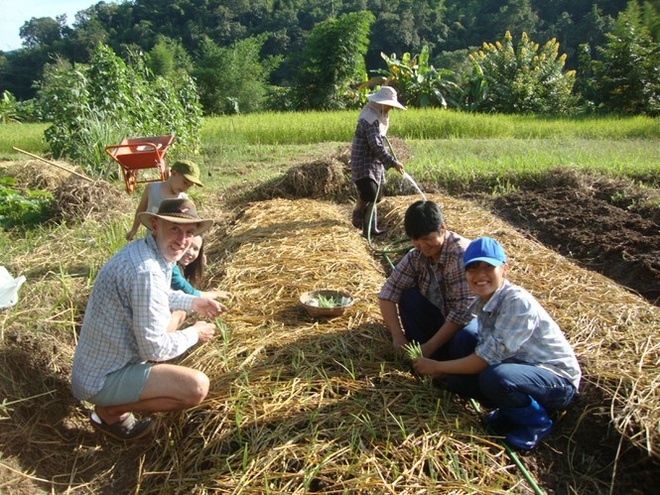How foreign teachers in Vietnam earn for living during COVID-19 outbreak
 |
| A Filipino teacher with her Vietnamese students |
David Orange, an English teacher from the US, said some young teachers who lost teaching jobs as schools closed, became waiters on the first days of the Covid-19 outbreak. However, they later lost the jobs when the bars and shops on streets for foreign backpackers and others also closed.
Many of them decided to leave Vietnam for India and Nepal, where they hope they can avoid the epidemic and find jobs.
Work at farms is one of the job opportunities that foreign native speaker teachers are looking for. Through WWOOF, a non-profit organization that connects organic farms of 99 countries, they have found farms in Vietnam – Tue Vien, Dream Farm and Organic Farm.
Volunteers work 4-8 hours a day and 5-6 days a week. In exchange, they receive accommodations and food. However, as the number of volunteers registering to work has increased sharply, not all people can take advantage of the opportunities.
Another solution is couchsurfing. In Vietnam, there is a couchsurfing community which has attracted thousands of members.
 |
Many families in Hanoi with good living conditions have registered to become the hosts. However, since the Hanoi authorities decided to isolate the Truc Bach area, where coronavirus patient No 17 was found, most couchsurfing houses have closed.
“I am afraid of getting infected with coronavirus from foreign backpackers. They don’t wear face masks,” said Nguyen Thi Nga, the owner of a couchsurfing address in Ba Dinh district.
Antoine, a French teacher, opened an online class, but he shut it down after three teaching hours.
“I cannot hear my students because of the internet buffering, so I cannot correct pronunciation mistakes,” he explained.
“I heard that some students in South Korea wanted their money back because the online teaching was ineffective. I don’t want this to happen to me,” he said.
Many other teachers still maintain online classes and accept just $12-15 per hour, equal to half of the rates they received before the epidemic.
Robert J. Fletcher said he is teaching students online with Zoom and collecting very ‘reasonable’ tuition. He has had a good impression about the government efforts to control the epidemic.
Recommended
 Handbook
Handbook
Vietnam Moves Up 8 Places In World Happiness Index
 Handbook
Handbook
Travelling Vietnam Through French Artist's Children Book
 Multimedia
Multimedia
Vietnamese Turmeric Fish among Best Asian Dishes: TasteAtlas
 Handbook
Handbook
From Lost to Found: German Tourist Thanks Vietnamese Police for Returning His Bag
 Handbook
Handbook
Prediction and Resolution for the Disasters of Humanity
 Handbook
Handbook
16 French Films To Be Shown For Free During Tet Holiday In Vietnam
 Handbook
Handbook
Unique Cultural and Religious Activities to Welcome Year of the Snake
 Handbook
Handbook




